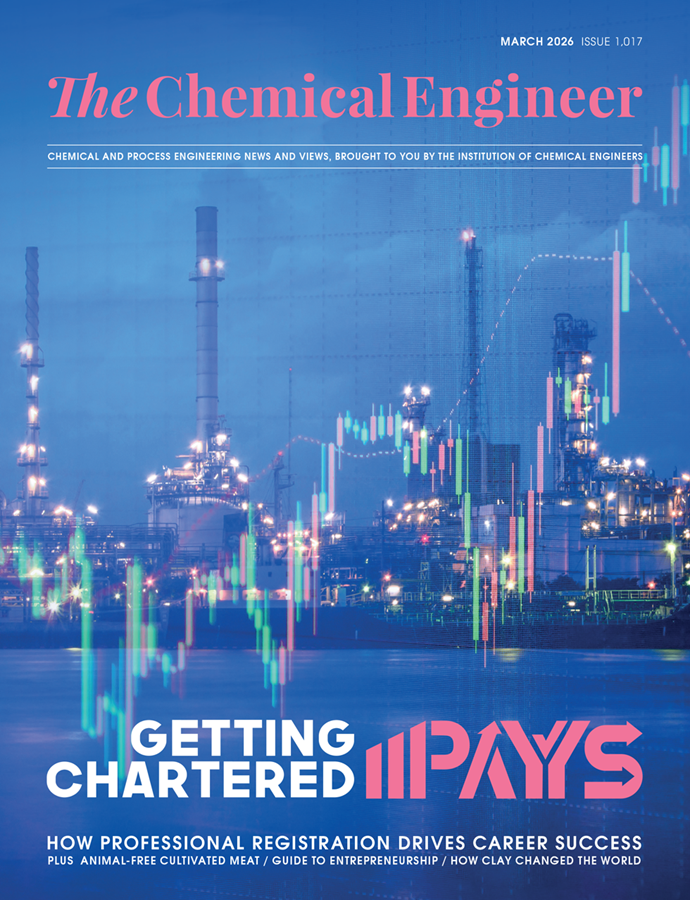IChemE Matters – July/August 2025

Supply issues
Duncan Lugton, head of policy and impact
IN THE grand setting of the Royal Society of Edinburgh’s Kelvin Room, beneath portraits of the society’s historic luminaries, IChemE brought together leading figures from industry, academia, and policy to discuss Scotland’s energy transition. The transition is well underway, with high levels of renewable electricity generation and significant investment in offshore wind and hydrogen – but there are some deep challenges that need to be met for it to be a success.
Two themes from the conversation really stuck with me. The first was a concern that policymakers aren’t thinking enough about the supply chains involved in delivering the energy transition. After all, the pieces of kit needed to deliver the transition (and the chemicals involved) all must come from somewhere. While cost control is a key concern for governments and businesses during procurement, there was concern in the room that it can sometimes overshadow other important factors – such as the economic benefits of sourcing domestically or the environmental impact of importing goods versus producing them locally.
The second big takeaway for me was how Scotland and the rest of the UK have historically been worse than their peers at capturing the economic value of the energy they produce. Other countries such as Norway have managed to capture more than twice as much of the economic value of their energy resources, and there are fears that the green energy transition could continue to see much of the economic benefits leaving the country. To ensure a just transition where all communities share in the benefits of new energy sources and the economic opportunities they bring, Scotland must do more to capture these benefits locally.
We are now going to do some work to map out these supply chain issues to help policymakers understand them better and will be following up these topics with civil servants and politicians in Scotland. I look forward to letting you know how we get on.
For more on our work: www.icheme.org/policy
Scrap Book

YOUR interview with Don Green about editing Perry’s (issue 1007) sparked a memory about how I came to own an early 1st Edition copy of the handbook – and how I ought to pass it on.
At 91 years old, my edition of Perry’s is just three years older than I am. I discovered it in 1953 while working as a student apprentice at the UK’s Atomic Energy Research Establishment in Harwell.
Near the areas I worked were several small, well-segregated scrap piles (not nuclear scrap, I hasten to add). One was designated “clean office scrap”. Going by one day, I noticed an old slide rule. I picked it up, checked it out and used it for next ten years or so. I made a habit of wandering by the scrap pile and it was there that I found my first (and only) copy of Perry’s.
This was well before “recycling” and “sustainability” became pressing concerns – so you could say I was way ahead of my time. In the same spirit, and without any engineers in the family to pass it on to, I wonder if someone else in our community might have use of it rather than hoping another chemical engineer fortuitously rescues it from a future pile of scrap.
Roger Pelham, US
Ed: We put Roger in touch with Don and the two are now discussing options for donating the book to the handbook’s editorial panel, library or museum.

Practice your interview answers in front of a mirror
In the first of a series of new webinars called What Employers Really Want: Insights for Graduate Chemical Engineers, panelist Andrea Poole, who hires engineers for AtkinsRéalis, gave the following tips:
“Your universities may offer you mock interview services. Take advantage of those. Even if you don’t have [access to] that, stand in front of a mirror, talk out loud, and practice saying what you think. We will definitely ask you to introduce yourself so practice that out loud.
“That builds up your confidence. [During interviews] when you give your answers, try and give examples. Drawing on the CAR principles: give some context, what actions were taken, and what were the results of that. That’s a really good way of structuring an answer to a question if you’re asked for an example.”
New Fellows announced
FOURTEEN members were elected Fellows of IChemE in April and May:
- Philip Caldwell, Ceres Power Holdings
- Jerome Ganachaud, Saudi Aramco
- Lisa Griffin, Anglian Water Services
- Vira Jogia, VRJ Consultancy
- Regina Lynch, Eli Lilly
- Frazer Mackay, PX Group
- Brenda Madden, PM Group
- Kirsty McCall, MWH Treatment
- Aftab Ramzan, Kent
- Peter Robertson, Queen’s University Belfast
- Lev Sarkisov, the University of Manchester
- Felicia Tan, bp
- Gabriella Thomas, Equinor
- Meng Woo, University of Auckland
The next meeting to elect new Fellows takes place in July.

Use AI to tailor your CV
In a webinar about moving from oil and gas to greener careers, panelist Nasiru Mohammed recommended using the AI application jobscan.co
You upload a master CV listing all your skills, experiences and hobbies – and paste in a link to the job advert.
“The AI does the clever thing of mapping your experiences with what the job ad is looking for and tells you how closely you match. It gives suggestions on what modifications to make to your CV to become a better match. It also tells you what applicant tracking software the recruiter is using so it gives you insight to what sorts of psychometric tests you will be expecting [and can prepare for].”
Members can watch the webinar here: https://bit.ly/green-job-switch

Recent Editions
Catch up on the latest news, views and jobs from The Chemical Engineer. Below are the four latest issues. View a wider selection of the archive from within the Magazine section of this site.




